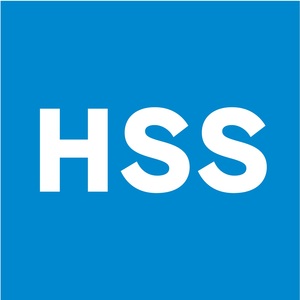Sports Medicine Experts Offer Tips to Help Post-Marathon Recovery
NEW YORK, Nov. 4, 2011 /PRNewswire/ -- More than 40,000 runners have spent the past several months training for the ING New York City Marathon. Once they have completed the race and achieved their goals, there are measures they can take to facilitate recovery, decrease post-race discomfort and return to running without injury.
Eating immediately after the marathon, icing sore muscles, and having a gentle massage are only a few of the tips that Michael Silverman, PT, MSPT, physical therapist from the Rehabilitation Department at Hospital for Special Surgery in New York, offers runners who cross the finish line.
"In recovery, marathon runners need to listen carefully to their bodies so they don't injure themselves," says Silverman. "Extensive training should have provided runners with a good idea of how their body works. Runners should take everything they've learned while training and apply it to taking proper care of their body after the marathon -- they will feel better, faster."
The following are marathon recovery tips from Silverman on ways to bounce back from a marathon:
* Eating the day after is just as important. Try to stay away from enormous meals. Eat small amounts of nutrient-rich foods every two hours. Good meals could be steak, sweet potatoes and broccoli. Berries, chocolate or yogurt parfaits are good desserts. Chicken stir fry with loads of vegetables is an excellent lunch;
* Ice your muscles often. If you are having severe muscle pain during the race, immediately go to the medical tent to ice your muscles. After returning home from the race, ice your muscles with ice packs or (preferably) an ice bath. Ice baths soothe microscopic muscle damage and inflammation. Sit in a 54 to 60-degree (Fahrenheit) ice bath for 6 to 12 minutes. Thirty to 60 minutes afterward, take a warm shower;
* Stretch correctly after the race. After finishing the race, walk for 10 to 15 minutes and perform very light stretching. During the next day, perform light stretching and a light warm-up (biking or a warm shower).
* Get a massage a few days after the race. Use caution during the first 48 hours after the race, as your muscles are very sensitive. If you get a massage, schedule it for a few days after the race. Make sure it is a flushing (light) massage and be sure the therapist knows that you just ran a marathon.
* Perform low-impact, low-intensity exercise after the race. Only start exercising when you are feeling ready. This can take up to a month. Cycling, the elliptical, and exercises in the pool (swimming, underwater running) are ideal;
* Wait five to seven days after the race before running again. Begin with decreased intensity on soft surfaces and don't run more than 25 percent of your peak weekly mileage. A good rule of thumb is: perform one week of reduced intensity training for every hour run.
"Feeling sore after a marathon is normal; but pain and swelling are the body's ways of indicating that something is wrong," says Brian Halpern, M.D., a primary care sports medicine physician at Hospital for Special Surgery and author of Men's Health Best Sports Medicine Handbook. "The best way to handle almost every sports injury is the RICE method, which stands for Rest, Ice, Compression and Elevation."
Experts from Hospital for Special Surgery will also lead the ING New York City Marathon Monday Recovery event at Tavern on the Green. They will discuss different post-race recovery approaches, stretching and provide consultations. For more information on this event, log on to http://www.ingnycmarathon.org/schedule.htm.
Hospital for Special Surgery is an Orthopedic Consultant to the New York Road Runners for the ING NYC Marathon.
About Hospital for Special Surgery
Founded in 1863, Hospital for Special Surgery (HSS) is a world leader in orthopedics, rheumatology and rehabilitation. HSS is nationally ranked No. 1 in orthopedics, No. 2 in rheumatology, No. 19 in neurology, and No. 16 in geriatrics by U.S. News & World Report (2011-12), and has received Magnet Recognition for Excellence in Nursing Service from the American Nurses Credentialing Center, and has one of the lowest infection rates in the country. From 2007 to 2011, HSS has been a recipient of the HealthGrades Joint Replacement Excellence Award. A member of the New York-Presbyterian Healthcare System and an affiliate of Weill Cornell Medical College, HSS provides orthopedic and rheumatologic patient care at New York-Presbyterian Hospital at New York Weill Cornell Medical Center. All Hospital for Special Surgery medical staff are on the faculty of Weill Cornell Medical College. The hospital's research division is internationally recognized as a leader in the investigation of musculoskeletal and autoimmune diseases. Hospital for Special Surgery is located in New York City and online at www.hss.edu
About ING New York City Marathon
The premier event of New York Road Runners, the ING New York City Marathon is one of the world's great road races, drawing nearly 105,000 applicants. The race attracts many world-class professional athletes, not only for the more than $600,000 in prize money, but also for the chance to excel in the media capital of the world before two million cheering spectators and more than 300 million worldwide television viewers. As any one of the 788,000 past participants will attest, crossing the finish line in Central Park is one of the great thrills of a lifetime. For more information visit www.ingnycmarathon.org.
This news release was issued on behalf of Newswise™. For more information, visit http://www.newswise.com.
SOURCE Hospital for Special Surgery
WANT YOUR COMPANY'S NEWS FEATURED ON PRNEWSWIRE.COM?
Newsrooms &
Influencers
Digital Media
Outlets
Journalists
Opted In





Share this article